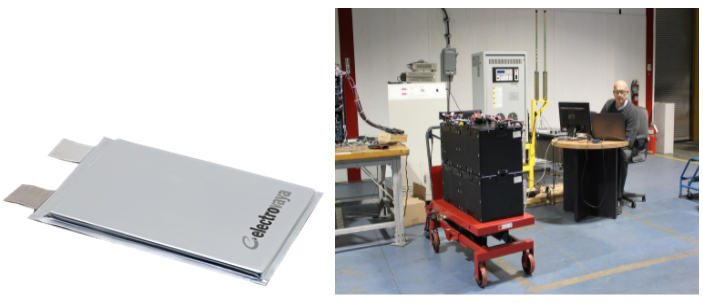
Lithium-ion batteries are providing the world with energy storage that is required for the electrification of transportation and material handling and is an enabling technology for everything from smart phones and consumer electronics to renewable energy. There is no doubt that this is the most important technology for the fight against climate change and reduction in Greenhouse gas emissions around the world. However, storing energy always comes with risks, and lithium-ion batteries are no exception. Due to the high energy density, safety incidents can become critical very quickly. This becomes more of a challenge for larger systems, such as those used in passenger electric vehicles and material handling equipment.
For instance, while a fire in a vehicle outdoors is concerning and should be taken very seriously, a fire within a warehouse, where equipment and fire hazards are closely packed, it can be extremely deadly. A fire at a distribution center operated for Amazon in Redlands California in June 2020, quickly escalated and resulted in the entire 100,000 square foot facility being destroyed https://www.cnn.com/2020/06/05/us/amazon-redlands-fire-trnd/index.html. This not only resulted in millions of dollars in lost property, but also endangers the safety of staff. As distribution centers can often have up to hundreds of electric forklift trucks in operation, there is a significant number of batteries operating at any given time.
To ensure safety of batteries, several key areas are fundamental, namely the lithium-ion cell, the battery management system (BMS) and the overall system design of the battery.

Most important is the lithium-ion cell itself. Here is where Electrovaya’s batteries are sharply differentiated as Electrovaya utilizes proprietary technologies like ceramic composite separator materials and unique cell design methods which ensures the cells can surpass the most difficult safety testing. The Electrovaya EV-44 cell is certified under numerous UL designations and is relatively difficult to fail due to its high temperature stability.
Another key piece of technology that is key to ensure the safety of the battery system is the BMS, which is a combination of hardware and software that ensures the battery is operating under safe conditions by monitoring all the lithium-ion cell temperatures, voltage, charging current, discharging current and other parameters. The Electrovaya battery management system is able to shut down the battery if it detects unsafe conditions and is also able to communicate to the vehicle and charger and regulate behaviour on those devices as well. Finally, the Electrovaya BMS logs all data and is able to transmit battery usage, performance and troubleshooting data to a proprietary data analytics site.
Finally, the overall system design is also critical to the safety of the battery design. Here, Electrovaya provides a holistic approach to the system design following a rigorous Design Failure Mode and Effect Analysis (DFEMA) process. Electrovaya utilizes several key approaches to ensure that the battery can withstand significant failures and remain safe. This is why Electrovaya was successful with its UL 2580 certification which is UL certification for batteries for electric vehicles.

In conclusion, energy storage is always something to be taken with caution and care. Whether this is a fuel tank, a hot cup of coffee or a lithium-ion battery, these devices can always cause harm if mishandled. Electrovaya through some key technologies and system engineering provides a solution which mitages safety challenges for lithium-ion batteries and provides warehouse operators with peace of mind.